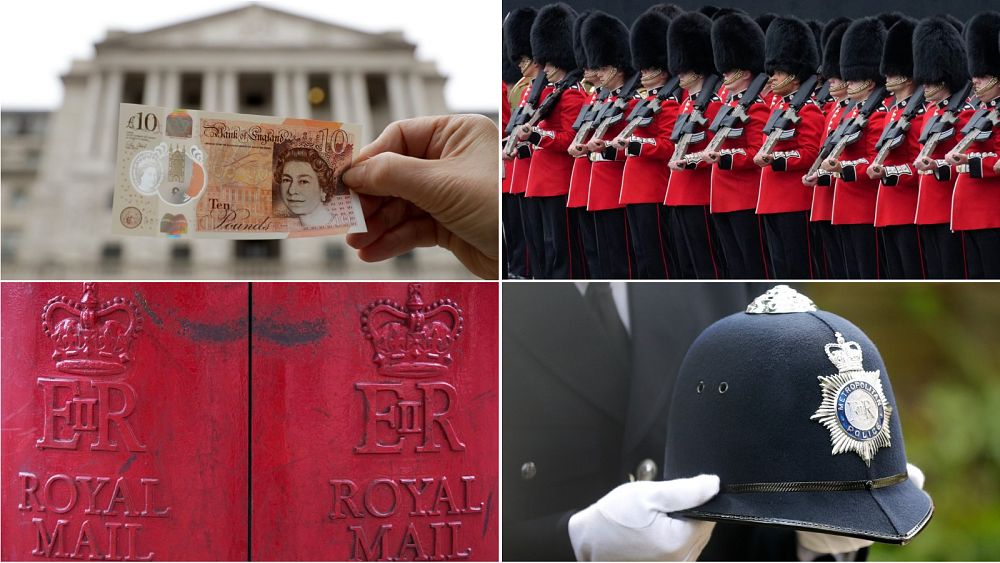From the national anthem to banknotes and stamps to passports, many material changes will kick in following the death of Queen Elizabeth II and the accession of Charles III.
Coins and stamps
King Charles III’s face will begin to appear on coins and banknotes in the UK and other countries around the world, replacing Queen Elizabeth II.
His effigy will also appear on several other currencies used in the Eastern Caribbean, Canada, Australia and New Zealand.
The same will apply for other islands and territories controlled by the British Crown.
Coins had been minted during King Edward VIII’s 326-day reign in 1936, but the monarch abdicated before they could come into circulation.
The face of the late Queen also appears on postage stamps, and the acronym EIIR, for Elizabeth II Regina, is affixed to post boxes, so this too will need to be changed.
This also applies for the insignia on police helmets.
God Save The King
The British national anthem, previously “God Save The Queen”, will become “God Save The King”, with a masculinised version of the lyrics.
This change will undoubtedly come as a challenge for many in Britain, who have been singing “God Save the Queen” since 1952.
The hymn represents one of New Zealand’s two national anthems and is the royal anthem of Australia and Canada, both of which have their own national anthem.
The wording on the inside cover of UK passports — which are issued in the name of the crown — will need to be updated.
A similar text appears in Australian, Canadian and New Zealand passports.
Upon raising a glass during official meetings, “The Queen” will now be replaced with “The King”. In the Channel Islands, the unofficial French phrase used when toasting (“La reine, notre duc”, or “The Queen, our duke”) will become “Le roi, notre duc” (“The King”).
His Majesty
The names of Her Majesty’s Government (“Her Majesty”), Treasury and Customs will now be substituted with “His Majesty”. It will now be the King’s Speech, and not that of the queen, which will open the parliamentary session by presenting the government’s programme to parliament.
The Queen’s Guard, a favourite for tourists visiting Buckingham Palace, will also change its name.
The police will no longer preserve the peace of the queen but that of the king, and barristers’ office will change from being called “QC (“Queen’s counsel”) to KC (“King’s counsel”).
Prisoners will no longer be held at the pleasure of “Her Majesty”, but will continue their imprisonment at that of “His Majesty” the King.
In the army, new recruits will no longer take “the queen’s shilling” when enlisting, as the formula indicates. Nor will they have to submit to the Queen’s regulations.
The name of “Her Majesty’s Theatre” in London’s West End theatre district, where popular musical “The Phantom of the Opera” has been performed since 1986, will now also change.




















Discussion about this post